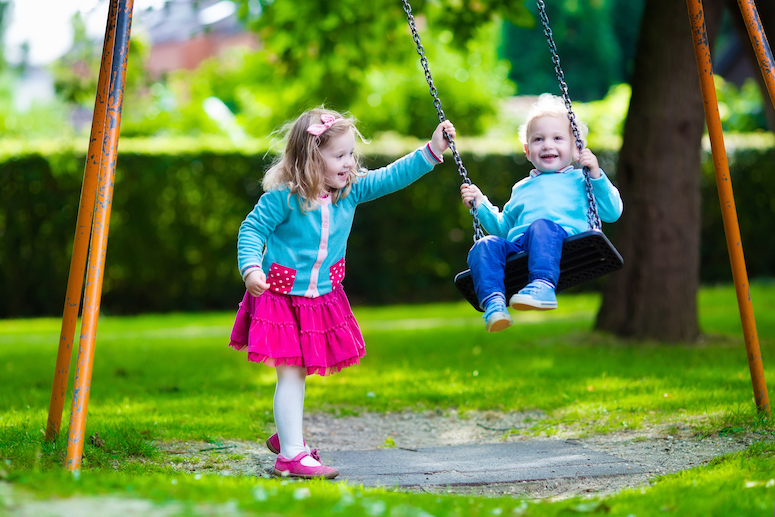The firstborn is used to being the center of attention in the house, and bringing home a new baby sibling threatens the attention they wants. Both baby and any other kids are part of the family and emotions may run high, so it is important to help your children adjust to the new family dynamic. While there may be some sibling rivalry at first, eventually Baby’s siblings will come to adore him as a valued member of the family!
Before Birth
Once you find out about the pregnancy, keep your child in the loop. Explain to him in a family friendly way what pregnancy is and that he will be getting a younger sibling who will require attention from his parents.
Consider using a children’s book to explain the process. Some good pregnancy books are What Makes a Baby by Cory Silverberg, It’s NOT the Stork! by Robie H. Harris, Hello Baby by Jenni Overend, and How Was I Born? By Lennart Nilsson.
Don’t give him false expectations about the reality of a baby. Don’t spin the new baby as simply a new playmate, but tell him about how the infant will cry, sleep, and eat. Tell him about what he was like as an infant and show him pictures.
Prepare the baby’s room prior to bringing your new addition home, as making so many changes in such a short time period could add unneeded stress.
Buy a baby doll so he can practice interacting with a baby and getting used to the thought of a new and tiny sibling. Go to a baby store with your child and have him pick out a toy or other item that he can gift to the baby, and prepare a gift for the baby to “give” him.
After Birth
Make bringing the baby home a celebration and include your kiddo. When the child comes to the hospital, have a gift exchange between the baby and his sibling. Depending on the age of the child and their emotions, let the child sit on a couch or soft surface and hold the baby. Take the opportunity to tell the child about how to properly treat their fragile sibling. Regardless of their feelings towards the baby, don’t leave the baby alone with a young child.
Tell visiting family members to greet the child before the baby. Also tell them that he may want to talk about things besides the baby, like his interests and activities.
In the days after bringing home the baby, give special attention to the other children. Do an activity without the baby, like going to the park or a movie. Even just asking about his day or reading a book with him shows that he is still a big part of the family.
Foster a relationship between the child and the baby by telling him how much happier the baby is when he is in the room or how much the baby loves him.
Addressing Problems
One common behavior for children is regression. He may want to start wearing diapers again or using a pacifier. They may see this as a way to get the same attention that the baby is getting. Emphasize to how much better it is to be a big kid than a baby, but don’t lecture or shame him. As a big kid, he can ride his bike, stay up late to watch movies, eat his favorite foods, and play sports. Let him act young but, whenever you get a free minute, spend more time with him. Regression is a cry for more attention.
Other toddlers can become aggressive with the baby, such as pulling on its arms or pinching. Toddlers can’t control their feelings like adults, so this is their way of expressing frustration. If you see signs or acts of aggression, step in immediately. This is a cry for attention, so don’t reinforce the behavior by giving it to it. Instead, go to the baby and give them your attention. Once he and the baby are settled, tell him that his behavior is unacceptable. Encourage him to let out his feelings by talking instead of hurting.
Make it difficult for your child to harm the baby by not leaving them alone together, keep sharp and dangerous objects away, and don’t let him hold the baby without close supervision on a soft surface like a couch.
While the beginning of their relationship may be rocky, the bond between siblings lasts a lifetime!
By Kelsey Sinclair

